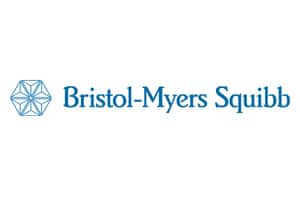 Bristol-Myers Squibb (BMS) has hatched a plan to buy Austrian biotech F-star Alpha in order to claim rights to FS102, a drug in development for HER2-positive breast and stomach cancers.
Bristol-Myers Squibb (BMS) has hatched a plan to buy Austrian biotech F-star Alpha in order to claim rights to FS102, a drug in development for HER2-positive breast and stomach cancers.
BMS is paying $50m in upfront fees for the option to acquire F-star along with licensing rights for FS102, and says the size of the deal could reach $475m if the drug eventually reaches the market in the US and Europe.
The agreement is the latest in a string of deals designed to bolster BMS’ position in immunotherapies for cancer in the last quarter, including alliances with Janssen, Novartis, Celgene, and the MD Anderson Cancer Centre in the US, as well as earlier collaborations with InCyte and CytoMx.
BMS’ chief executive Lambert Andreotti said during the company’s results presentation last week that the company has a commitment to explore “a full range of opportunities” in immuno-oncology, including different combinations across multiple tumour types.”
F-star has its headquarters in Vienna but runs its research operations out of the Babraham Research Campus in Cambridge, UK. It focuses on the development of bi-specific antibodies, which are capable of binding to two molecular targets simultaneously.
It has developed a platform called Fcab which allows researchers to place antigen binding sites on antibodies in a “plug and play” manner, and FS102 – which is due to start phase I trials shortly – is the first drug candidate to come out of that programme.
FS102 works differently to current HER2-targeted therapies such as Roche’s Herceptin (trastuzumab) and Perjeta (pertuzumab), and is being developed specifically to meet the problem of resistance to those drugs. It binds to a unique site on HER2 and induces programmed cell death in HER2-positive cells.
As many as 20% to 50% of HER2-positive breast cancers do not respond to treatment and even among those that do respond, many eventually develop resistance, according to the company.
BMS R&D chief Francis Cuss said the drug candidate “is consistent with our R&D strategy to develop promising treatments that address areas of high unmet medical need.”




